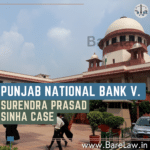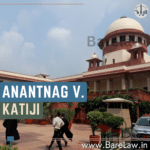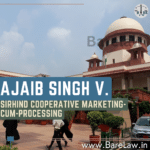
Introduction
1981 was the year of a monumental landmark in Indian Torts, when case between Dr. Ram Baj Singh and Babulal took place, and caused a radical change in Indian tort law. It dealt with a specific personal injury claim as well as the principles and application of tort law within India at large. A subtle grasp of liability and compensation for personal injuries marks this case particularly.
Background
The instant suit by Dr.RamBajSingh sought remedies against Baba Lal who had wrongfully injured him through an accident that resulted to bodily harm. The lawsuit involved various legal issues such as negligence, duty of care and damages for wrongful acts. This happened during a period when common law was being introduced into Indian legal system vis-à-vis torts.
Key Arguments and Legal Principles
Negligence and limits of responsibility were the cruxes which lay at the core of the arguments in this litigation. Lawyer representing Dr.RamBajSingh focused on demonstrating that there had been a breach from the accepted level of care resulting in talk about bodily harm. Furthermore, it is expected that both causality link with actions made by Baba Lal would be denied together with severity of injury.
One major issue explained in this particular case was how negligence statutes were interpreted especially those relating to accidents or any other causes leading to injuries.The court considered factors such as what one would expect from another person under similar circumstances; whether he might have anticipated some injury on his part; how much reparation has been given him.
The Decision
This decision made by the court in “Dr.RamBajSingh v.Babulal” was among many turning points in Indian Tort Law because not only did it show what kind of injuries could be compensated but also established what constituted negligence or causation regarding cases having personal injuries.Finally, duty-of-care formed an essential element in its judgement along with others which demanded conduct reasonably likely to avoid harm.
Implications and Legacy
It affected Indian jurisprudence in far-reaching ways. Major case laws were set by the judgment in the area of tort law especially on negligence and personal injury. This is, summed up as one of those landmark cases for which a person can refer to when they require an understanding of how minor error amounts to liability that falls under Indian law on torts.
The verdict revealed how individuals could be held accountable before the law hence shaping the handling of a personal injury claim within the Indian judicial system that results from negligence.
Conclusion
Dr.RamBajSingh v.Babulal (1981) is a significant case in the annals of Indian tort law which remains vital for students studying this branch of knowledge. The case demonstrates intricacies involved n personal injuries claims and growth of torts within India. It is among highly recommended referential material for advocates and scholars intending to gain more on these types responsibility even for mere slight mistakes as per Indian judicial system.





